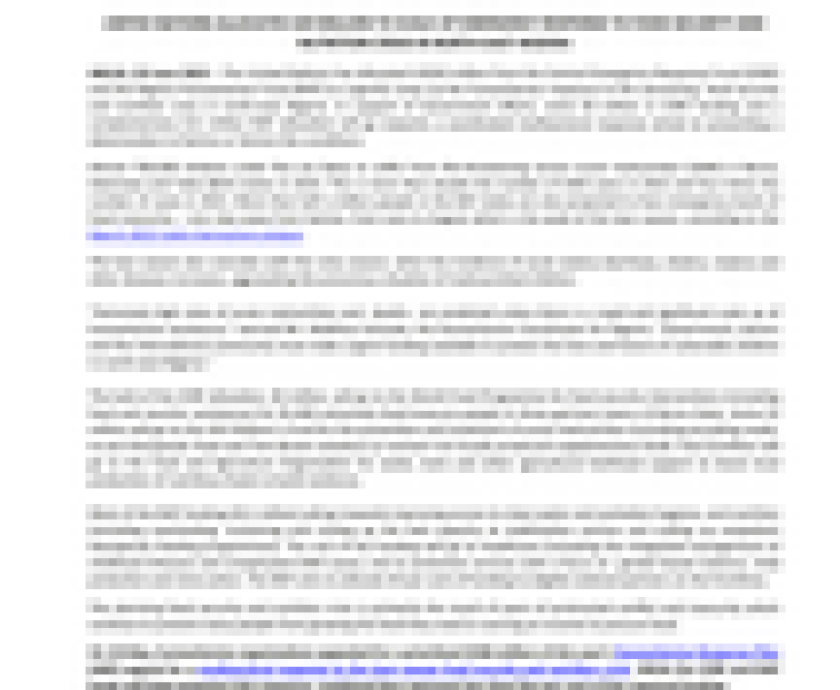Click to expand Image
Indian paramilitary soldiers stand guard next to teachers at a government school where suspected militants fatally shot two teachers on the outskirts of Srinagar, India, October 7, 2021.
©2021 AP Photo/Dar Yasin
(New York) – Indian authorities should take urgent steps to protect minority communities that are being targeted by armed groups in Jammu and Kashmir, Human Rights Watch said today. The government’s failure to address serious allegations of human rights abuses and recent repressive policies has heightened insecurity among Kashmiris.
In separate incidents in Kashmir in October 2021, unidentified gunmen shot and killed seven people in Kashmir, four of them from the Hindu and Sikh minority communities. At least 26 people, including political workers, have been killed in Kashmir this year in targeted attacks, according to police reports. The Indian security forces have a long history of committing extrajudicial killings of people alleged to be militants in counterinsurgency operations.
“Kashmiris are caught in unending violence from attacks by militants and abuses by government authorities and security forces,” said Meenakshi Ganguly, South Asia director at Human Rights Watch. “The authorities should protect minorities in Kashmir and ensure justice for victims of security force abuses.”
On October 7, suspected militants killed Supinder Kour, a Sikh who was the school principal, and Deepak Chand, a Hindu teacher, inside a government school in the city of Srinagar. On October 5, gunmen shot and killed three men in separate attacks: Makhan Lal Bindroo, a pharmacist from the Kashmiri Pandit minority; Virender Paswan, a Hindu street-food vendor from Bihar state; and Mohammad Shafi Lone, a Muslim taxi driver. On October 2, gunmen killed Majid Ahmad Gojri and Mohammad Shafi Dar, both Muslims.
The Resistance Front, a militant group that Indian authorities say is affiliated with the Islamist armed group Lashkar-e-Taiba, claimed responsibility for several of the killings, saying they were targeting people who worked with the government and were anti-Kashmir.
Hundreds of thousands of Kashmiris – many of them Hindu – were displaced from the Muslim-majority Kashmir Valley after a spate of attacks by militant groups in 1989-90. The government has failed to bring about their safe return. The killings of people from minority communities who chose to remain or are working in Jammu and Kashmir will further slow these efforts.
Only a few hundred diplaced Kashmiri Pandit families have returned in response to government programs to create jobs and shelters. “Far from enabling their return, the fear now is that these killings could possibly spread a fresh wave of panic and lead to a fresh migration of non-Muslims from Kashmir,” said a Kashmiri analyst, who spoke on condition of anonymity.
In August 2019, the Indian government revoked the constitutional autonomy of Jammu and Kashmir and split the state into two federally governed territories. The government action was accompanied by serious rights abuses including arbitrary detention of hundreds of people, a total communications blackout, and severe restrictions on freedom of movement and assembly. Since then, the authorities have released many of the detainees and restored the internet, but have intensified their crackdown on media and civil society groups.
Security forces have been implicated in numerous abuses in enforcing restrictions since August 2019 including routine harassment and ill-treatment at checkpoints, arbitrary detention, torture and extrajudicial killings. In July 2020, security forces killed three men in Shopian district claiming they were militants and were killed in a gunfight during a search operation. Their families said that the men were laborers from Jammu who had gone in search of work. An investigation by the Jammu and Kashmir police found the army claims to be false, and in December 2020 the police filed charges against an army captain and two civilians for abduction and murder of the three workers.
A 2019 report from the Office of the United Nations High Commissioner for Human Rights noted abuses by both armed groups and government security forces in Kashmir. It said that armed groups were responsible for human rights abuses in Kashmir including kidnappings, killings of civilians, sexual violence, recruitment of children for armed combat, and attacks on people affiliated or associated with political organizations in Jammu and Kashmir. India has long accused Pakistan of providing material support, arms, and training to the militant groups. Attacks in Kashmir have resulted in more than 50,000 deaths since 1989. The UN report also discussed use of excessive force and arbitrary detention by security forces.
The UN High Commissioner’s Office said that India’s Armed Forces (Jammu and Kashmir) Special Powers Act (AFSPA) “remains a key obstacle to accountability,” because it provides effective immunity for serious human rights violations. The Indian government has disregarded widespread calls for repeal of the abusive law from within India and abroad, including by activists, government-appointed committees, politicians, and UN human rights bodies.
The act grants the military wide powers to arrest, shoot to kill, and occupy or destroy property in counterinsurgency operations. Since the law came into force in Jammu and Kashmir in 1990, the Indian government has not granted permission to prosecute any security force personnel in civilian courts. Human Rights Watch and others have long documented that the law has become a tool of state abuse, oppression, and discrimination, and called for its repeal.
“The Indian government’s failure to confront its own rights abuses feeds Kashmir’s brutal cycle of violence,” Ganguly said. “This violence won’t end without justice for past and present abuses and respect for people’s rights and freedoms.”



